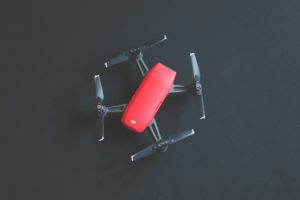
The FAA is moving forward on changes in regulations for recreational drone operators.
The passage of the FAA Reauthorization Package repealed Section 336 of the federal code and opened the way for new regulations for recreational operators, which had previously been considered “model aircraft” and exempt from any new laws. The repeal was lauded by many in the defense industry and the commercial drone industry, who felt that similar aircraft should be subject to the same regulations, regardless of purpose. Perhaps most importantly, the repeal of Section 336 opeend the way for all drones to be required to comply with Remote ID standards as they are developed, allowing for a more transparent view of the airspace and helping drone integration into air traffic management systems.
One of the more contentious topics raised by the repeal of Section 336 was the issue of licensing or certification for remote pilots. FAA Reauthorization calls for recreational pilots to be subject to an aeronautical knowledge test, ensuring that all flyers understand the basic safety rules of flight. Model aircraft and recreational pilots advocacy groups, however, have called for the test to be easily accessible and not as comprehensive as that required for commercial operators, pointing out that a barrier to entry that is too high for young flyers will limit entry into the hobby – and limit potential innovators as hobbyists move into the commercial sector.
The FAA is developing the test, and asking for stakeholders to come forward and apply to participate in training and test administration.
The following is an FAA press release.
The Federal Aviation Administration (FAA) issued a Request for Information (RFI) this week seeking to work with stakeholders on the administration of a new aeronautical knowledge test for recreational drone operators.
Section 349 of the FAA Reauthorization Act of 2018 (PDF) requires new conditions to operate recreational small unmanned aircraft systems (UAS). Many drones can be flown today with minimal training or knowledge of aviation rules or safety practices. The new statute is an opportunity to educate recreational flyers on UAS safety and to bring new flyers into the existing aviation safety culture.
The law requires that flyers of recreational drones pass an aeronautical knowledge and safety test. The test will demonstrate a recreational flyer’s understanding of aeronautical safety knowledge and rules for operating a UAS.
The FAA is developing the test content and the training in consultation with stakeholders. The test must be administered electronically by the FAA, community-based organizations, or other persons designated by the FAA. The FAA’s objective is to work with third party entities to allow them to administer the knowledge training and test content on various platforms for the recreational flyer community.
The FAA is looking for entities who want to become testing designees, who will administer the training and testing to the widest audience possible, and who will develop a standard electronic record that will be issued to the potential operator upon completion of the test. The entity will provide the potential drone operator with documentation that they passed the test, which may be requested by the FAA or local law enforcement.
Interested parties should review the RFI and respond by September 12, 2019.

Miriam McNabb is the Editor-in-Chief of DRONELIFE and CEO of JobForDrones, a professional drone services marketplace, and a fascinated observer of the emerging drone industry and the regulatory environment for drones. Miriam has penned over 3,000 articles focused on the commercial drone space and is an international speaker and recognized figure in the industry. Miriam has a degree from the University of Chicago and over 20 years of experience in high tech sales and marketing for new technologies.
For drone industry consulting or writing, Email Miriam.
TWITTER:@spaldingbarker
Subscribe to DroneLife here.







[…] Quelle: DroneLife […]